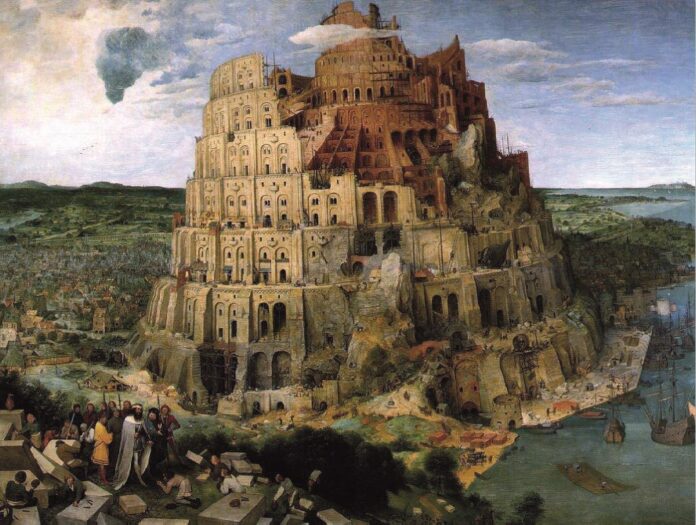HAVE YOU HEARD of the ‘seven deadly sins’? In the days when western society was more religious, it was a familiar phrase. It’s actually not a list you’ll find in the Bible. In fact as far as the Bible is concerned the idea is nonsensical. ‘Sin’ is disobedience to God. All sins are deadly, even little sins, unless God forgives them—and He is willing to forgive every sin, however big, if we repent. That’s why Christ died:
‘All have sinned and fall short of the glory of God, and are justified by his grace as a gift, through the redemption that is in Christ Jesus’ (Romans 3:23–24).‘
But the list served as a reminder of some basic vices that people should beware of. Here’s the list: pride, greed, wrath, envy, sexual lust, gluttony and laziness.
It doesn’t take much thought to recognise that in our modern world the items on this list are viewed with very much less severity. Some of them are positively encouraged— for example greed leads to material consumption which is a driver of economic growth, and psychologists generally view erotic fantasies as harmless and healthy. And as for pride, that is now widely seen as a virtue.
We are urged to take pride in ourselves, in our achievements, in our possessions, and in our identity—whatever that identity might be. Why is it that what used to be regarded as wrong is now regarded as right? It’s sometimes the case that a sense of self-pride is seen as an antidote to the destructive human tendency to self-loathing. I suggest it’s also a symptom of the spirit of our age—the elevation of ourselves.
With its usual clear insight into human nature, the Bible explains for us what pride is, and why it’s not something to be proud of…
Babel
After the Flood at the time of Noah, the human race began to multiply. ‘Then they said, Come, let us build ourselves a city and a tower with its top in the heavens, and let us make a name for ourselves, lest we be dispersed over the face of the whole earth”’ (Genesis 11:4). Perhaps they were thinking they needed somewhere that would keep them safe in the event of another flood—but there was a deep human urge at work in their reasoning. This was the first skyscraper, which has had its successors in so many building projects since. There’s nothing intrinsically wrong with big buildings, but how many edifices in our cities are expressions of the pride of individuals and corporations? These people wanted to make a name for themselves, and in so doing they wanted to challenge God.
God was not pleased. ‘The heavens are the Lord’s heavens, but the earth he has given to the children of man’ (Psalm 115:16). He thwarted the project and scattered its builders, and it became known as the Tower of Babel.
The empire of Babylon occupied the same location, some 1500 years later. Its most famous king was Nebuchadnezzar. History records him as an arrogant despot, and that’s how he’s presented to us in the Bible’s book of Daniel. But Daniel chapter 4 is the extraordinary account of how God taught him humility. The chapter concludes, ‘Now I, Nebuchadnezzar, praise and extol and honour the King of heaven, for all his works are right and his ways are just; and those who walk in pride he is able to humble’ (v. 37).
This is a crucial point. Human pride is essentially a challenge to God. The Bible is clear about the relationship of God to His creation: ‘Be not rash with your mouth, nor let your heart be hasty to utter a word before God, for God is in heaven and you are on earth. Therefore let your words be few’ (Ecclesiastes 5:2). ‘The fear of the Lord is the beginning of knowledge’ (Proverbs 1:7).
There are times when we’re feeling pleased with ourselves—because of a talent, or an achievement or a compliment. The appropriate response is not pride, but thankfulness: ‘Bless the Lord, O my soul, and forget not all his benefits’ (Psalm 103:2).
Antidote to Pride
The kings of Israel were told to write out for themselves a copy of their Bible, and read it daily. It would teach them wisdom, and also humility: ‘that he may learn to fear the Lord his God by keeping all the words of this law and these statutes, and doing them, that his heart may not be lifted up above his brothers’ (Deuteronomy 17:19–20). That is what reading the Bible does—it shows us God, and ourselves, and puts our existence in perspective.
The message of the Bible is clear. We are sinners, we have no merit of our own: ‘We all fade like a leaf, and our iniquities, like the wind, take us away’ (Isaiah 64:6). We are dependent on the grace of God. And God’s grace is more abundant than we can ever need. Remember where we started: ‘All have sinned and fall short of the glory of God, and are justified by his grace as a gift, through the redemption that is in Christ Jesus’ (Romans 3:23–24). It’s natural that human pride should be encouraged in a society which increasingly disregards God. But human pride has no place in the Christian life. ‘God opposes the proud, but gives grace to the humble’ (James 4:6).


